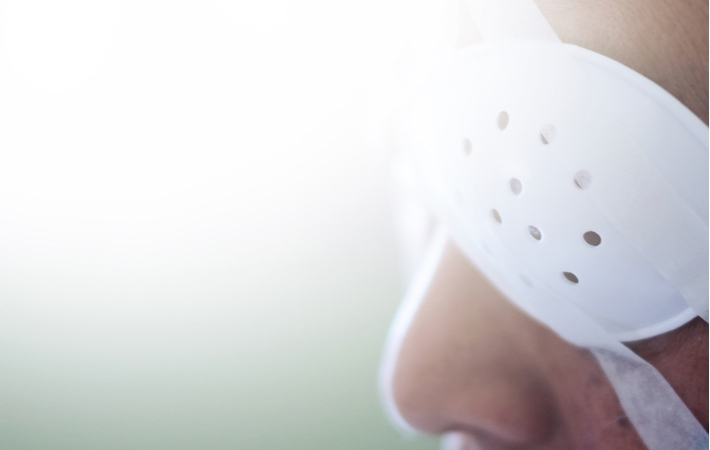If you’re looking for long-lasting vision correction from refractive errors, it may be time to consider laser eye surgery. Laser eye procedures can correct vision problems for patients with:
- Nearsightedness (Myopia)
- Farsightedness (Hyperopia)
- Astigmatism
- Presbyopia
Laser eye surgery is a standard and safe procedure performed on over 75,000 Canadians each year with remarkable success.
Patients are often unaware that more than one laser surgery procedure is available. Although LASIK is the most popular vision correction surgery, many different methods have developed from several technological advancements over the last few decades.
Are you fantasizing about a frameless future? PRK eye surgery may be exactly what you need!
Believe it or not, photorefractive keratectomy (PRK) is a laser eye surgery that emerged well before the popularity of LASIK. The primary difference between LASIK and PRK is how your ophthalmologist gains access to the corneal tissue.
PRK eye surgery doesn’t work for every prescription, but Vector Eye Centre can help determine if you’re a candidate by conducting a refractive assessment. We can evaluate your overall eye health, and establish what correction level is required.
Have your eye doctor contact us for a referral if you’re interested in consulting with our team for your PRK eye surgery.
PRK Eye Surgery
Photorefractive keratectomy (PRK) employs a computer-programmed laser to alter the shape of your cornea, which is similar to LASIK, but with different procedures.
During the PRK surgery, your ophthalmologist removes the cornea’s outer layer (called the epithelium) and uses a computerized laser to correct refractive errors. The epithelium requires a brief healing period for a few days after the procedure.
PRK eye surgery has many advantages, and it’s particularly well-suited for patients with thinner or more irregular corneas, patients with dry eye disease, or patients who are more likely to experience complications from the flap becoming dislodged during the healing period or based on their lifestyle or occupations.
PRK is a genuinely safe and effective procedure, with most of its patients experiencing excellent vision post-surgery.
Refractive Assessments
During a refractive assessment, the primary goal is determining if a patient is an appropriate candidate for laser eye surgery, and which surgery would work best with their vision. Ocular health and previous medical conditions will play significant roles in determining eligibility.
Your ophthalmologist measures your cornea’s thickness, and works to determine the stability of your vision. Before recommending any laser eye surgery, your eye care team wants to ensure your prescription has remained relatively static through several routine eye exams over the past 2 or more years.
PRK eye surgery is not perfect for every patient. The ideal candidate is a patient who:
- Is over 20 years old
- Has a stable prescription (unchanged vision for over a year)
- Is not breastfeeding or pregnant
- Has a general pupil size of 6mm or less in a dark room
- Has no history of repeating eye infections
- Has healthy corneas with thickness to support surgery
- Does not have an autoimmune disease
- Does not have glaucoma
- Does not have diabetes
- Does not have any underlying cornea disease
- Does not have any underlying dry eye or ocular surface disease
If a refractive assessment determines that you’re a suitable candidate, we’ll go over the details of the chosen procedure and the limitations of laser eye surgery.
The Procedure
The entire PRK procedure takes approximately 15 minutes to complete!
The ophthalmologist begins by numbing your eyes. After ensuring your comfort, they remove and discard the cornea’s outer layer using a specialized brush, blade, laser, or alcohol solution.
Following this step, a computerized laser (programmed to your specific prescription) reshapes your cornea by removing precise amounts of tissue.
After your surgery, the surgeon places a bandage contact lens on the eye to encourage healing, and will recommend 1 week off of work and regular activities to relax and recover from the procedure.
Patients often notice an improvement in vision within the first 3-5 days post-surgery, but it can take a few months to achieve their optimized vision.

The Healing Process
The estimated healing time for PRK is about two weeks to a month, but patients often report daily improvements. You may experience sensitivity to light and irritated eyes for a few days following your surgery until the bandages are removed.
At Vector Eye Centre, we work hand in hand with our patients and their optometrists after an eye procedure, and they’ll be scheduled for a series of follow-up appointments to ensure a healthy healing process.
Your optometrist should check in often during recovery, continue to assess visual acuity, and quickly address any possible side effects. Post-operative care is a tremendous factor in the healing process, helping ensure patients receive maximum benefits from their surgery.
Most PRK patients experience 20/25 vision or even better approximately 3 months after their procedure.
Possible Side Effects
Some patients may experience a few side effects while healing from PRK eye surgery, like:
- Discomfort
- Difficulties with night vision
- Sensitivity to light
- Glare or halos around lights
- Fluctuation in vision
- Foreign body sensation
Your eye doctor can prescribe medication for any discomfort, and most visual difficulties should resolve themselves a few days to a few weeks post-procedure.
The Right Choice for Your Vision
It’s incredible to have so many available options for corrective eye surgery, but sometimes it can be challenging to choose what works for our vision; thankfully, Vector Eye Centre is here to point you in the right direction!
Contact our knowledgeable team for more information if you have been considering a more permanent solution for your refractive errors and want to know more about PRK Eye Surgery.
We’re passionate about your eye health and are always willing to help.



